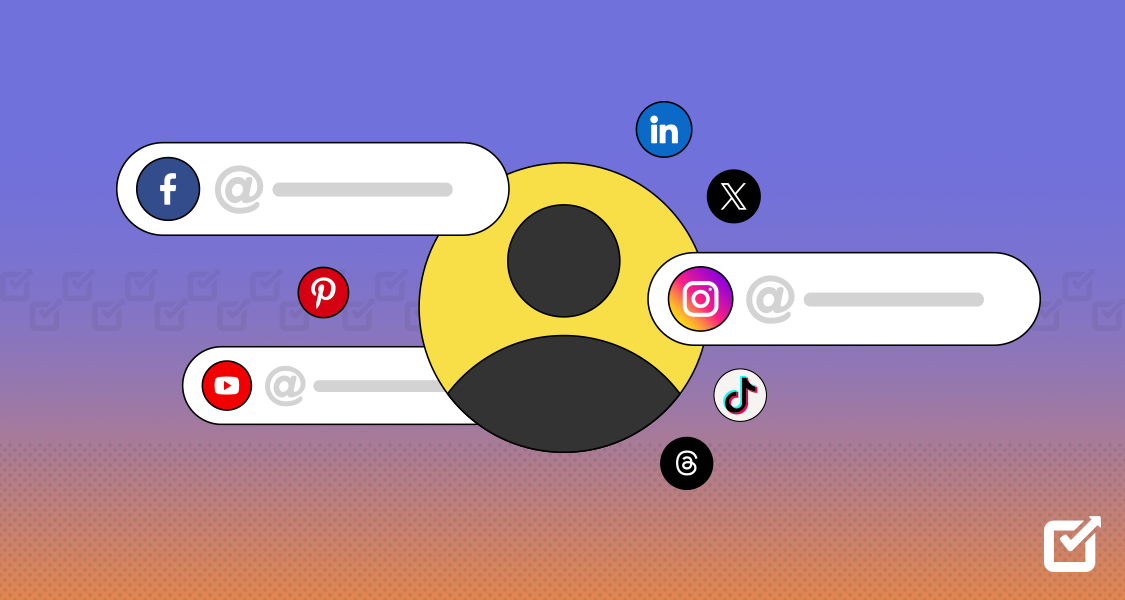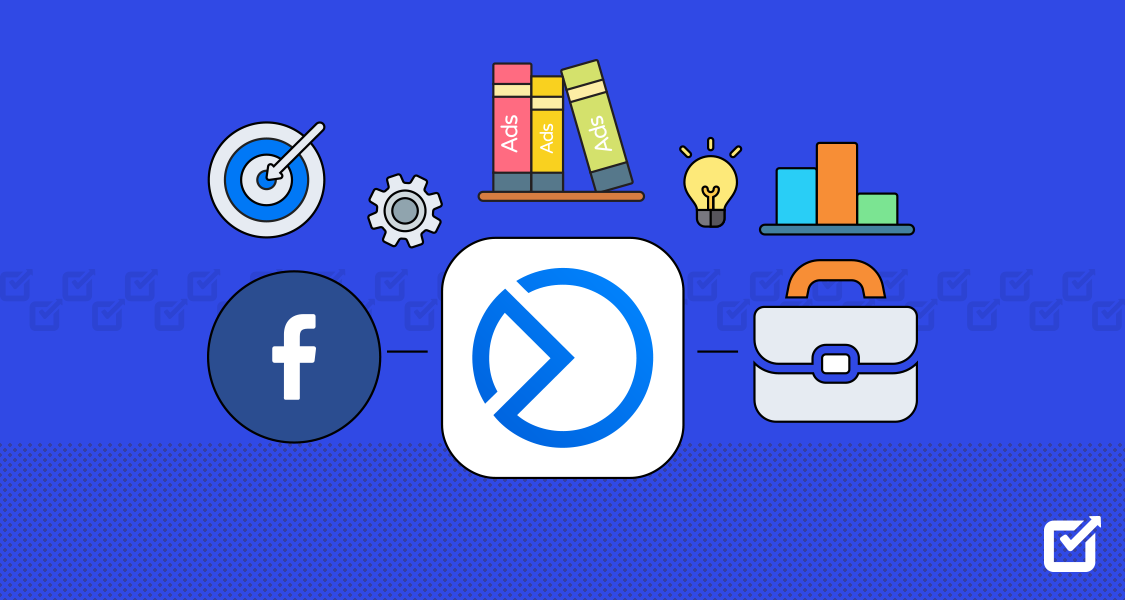Did you know brand collaborations can be up to 25 times less expensive
than traditional digital advertising?
That’s why we’ve curated a list of the best social media collaboration tools to help your agency streamline workflows and deliver exceptional results.
In this guide, we’ll teach you ways to select the best collaboration tool for your needs. We’ll also list our top contenders and the best practices to enhance your collaboration in real time!
Let’s start

Elevate Your Social Media Agency with Social Champ!
Simplify your client’s social media management with powerful features like bulk scheduling, seamless platform integration, in-depth analytics, and affordable pricing.
Short Summary
- Collaboration tools enhance workflow, communication, content quality, and decision-making, supporting team growth and efficiency.
- You can choose social media collaboration tools based on user-friendly interfaces, content calendars, team collaboration features, and content creation tools.
- It’s important to look for tools with top-grade analytics, multi-platform management, customizable approval workflows, and integration capabilities.
- Make sure your tool offers scalability, security, compliance, and customer support.
- Consider Social Champ, a top tool offering real-time collaboration, centralized content planning, detailed analytics, and integrations.
- You can evaluate tools through free trials, focusing on user experience, cross-platform support, and long-term potential.
What to Look for in Social Media Collaboration Tools
When choosing social media collaboration tools for your team, it’s crucial to consider several key factors.
The right tool can streamline your workflow, boost productivity, and help your team create more impactful content.
Here’s what you should keep an eye out for:
User-Friendly Interface
A clean, intuitive interface is non-negotiable. Your team should be able to navigate the tool easily without extensive training. Look for:
- Clear, logically organized menus
- Drag-and-drop functionality
- Customizable dashboards
- Mobile responsiveness for on-the-go access
Attractive Content Calendar
An effective content calendar is the backbone of any social media strategy. Seek tools that offer:
- Visual calendar views (monthly, weekly, daily)
- Drag-and-drop post scheduling
- Color-coding options for different platforms or campaigns
- The ability to view content across multiple social networks
Team Collaboration Features
Seamless collaboration is key. Your tool should facilitate:
- Real-time commenting and feedback on posts
- Task assignment and tracking
- Version control for content drafts
- Integration with communication tools like Slack or Microsoft Teams
Content Creation and Editing Tools
Look for built-in features that support content creation, such as:
- Basic image editing capabilities
- Pre-made templates for various post types
- A library of royalty-free images and graphics
- The ability to create and store brand assets (logos and color palettes, among others)
Analytics and Reporting
Data-driven decision-making is crucial. Ensure your tool provides the following:
- Cross-platform analytics in a unified dashboard
- Customizable reports
- Real-time performance tracking
- Competitor analysis features
Multi-Platform Management
Your tool should support all the social media platforms your team uses, allowing you to:
- Schedule and publish content across multiple networks
- Tailor content for each platform’s specifications
- Monitor engagement across all channels
Approval Workflows
For teams with strict content guidelines or multiple stakeholders, look for:
- Customizable approval processes
- The ability to set different permission levels for team members
- Automated notifications for pending approvals
Integration Capabilities
Your social media tool should play well with others. Consider integrations with:
- Customer Relationship Management (CRM) systems
- Content Management Systems (CMS)
- Email marketing platforms
- Project management tools
Social Listening and Engagement Tools
To stay on top of conversations about your brand, look for:
- Real-time monitoring of brand mentions
- Sentiment analysis
- The ability to respond to comments and messages directly from the tool
Scalability and Pricing
Choose a tool that can grow with your team:
- Flexible pricing tiers
- The ability to add or remove users easily
- Customizable feature sets based on your needs
Security and Compliance
Protect your brand and data with the following:
- Two-factor authentication
- Role-based access control
- Compliance with data protection regulations (e.g., GDPR)
Customer Support and Resources
Ensure you’ll have help when you need it:
- 24/7 customer support
- Comprehensive knowledge base and tutorials
- Regular webinars or training sessions
Featured Article: Crafting Social Media Handles That Mirror Your Brand Identity
Top Social Media Collaboration Tools for 2025
Here’s a rundown of the leading social media collaboration tool examples for 2024, starting with Social Champ, the top contender in the market.
Social Champ

Social Champ’s dashboard Social Champ is a renowned post-scheduling and collaboration tool designed for high-performing distributed teams.
It offers a comprehensive suite of features that make social media management a breeze.
Features:
- Real-time team collaboration
- Centralized content planning and scheduling
- Detailed analytics and performance insights
- Integration with popular tools and platforms
- Secure team communication

Social Champ: Your Social Media Collaboration Supertool!
Our all-in-one platform is designed to streamline your team’s collaboration efforts, boost efficiency, and deliver exceptional results for your clients.
Highperformr

Highperformr’s landing page Highperformr is designed for high-functioning executives, remote teams, and social media managers and has an unending task list.
It streamlines your work by offering a centralized platform for scheduling and analytics.
Features:
- Schedule content on the go
- Bulk upload media files
- Optimize publishing time for maximum visibility
- AI-based content creation
- Secure online engagement
SocialPilot

Social Pilot’s dashboard SocialPilot is excellent for mapping out ideas, writing strategy briefs, and executing tasks.
It allows for real-time collaboration, making it perfect for brainstorming sessions with remote teams.
Features:
- Open invitation to unlimited members
- Individual admin access
- Consistent service for all major social media platforms
- RSS feed automation
Hootsuite

Hootsuite’s landing page Hootsuite is a versatile tool for mid-sized teams focused on in-house content creation and publishing.
It offers a comprehensive dashboard for idea organization and pipeline management.
Features:
- Monitor multiple social media channels
- Collaborative features for team consistency
- Calendar and dashboard for content management
Buffer

Buffer’s dashboard Buffer is a project collaboration platform with AI-based analytics.
It offers hundreds of integrations and flexible project views, making it a centralized tool for team collaboration.
Features:
- Reliable content scheduling
- Commendable customer support
- In-app engagement through social media mentions alerts
- Chrome plug-in for sharing content
Asana

Asana’s dashboard Asana is a visually intuitive tool with a clutter-free interface, perfect for high-performing teams that need minimal guidance.
Features:
- Automatic alerts to collaborators
- Visually appealing workflows
- Limited task allotment to one user
Featured Article: Social Media Engagement: Proven Tips & Tricks to Excel in 2025
Sprout Social

Sprout Social’s dashboard Sprout Social is tailored for mid to large-sized enterprises, offering sophisticated project timelines and robust collaboration spaces.
Features:
- Single dashboard for all platforms
- Social listening tool for topic tracking
Canva

Canva’s dashboard Canva is not just a design tool but also offers collaboration features that help teams assign tasks and keep tabs on progress.
Features:
- Comment and tag feature
- Extensive template library
Notion

Notion’s landing page Notion combines documentation, knowledge base, task and project management, and spreadsheets into one tool, making it ideal for teams needing diverse functionalities.
Features:
- User-friendly interface
- Comprehensive tutorials and documentation
Plannable

Planable’s landing page Plannable is flexible and adaptable for small—to mid-enterprise teams. Its features organize the entire workflow within a single dashboard.
Features:
- Intuitive commenting feature
Slack

Slack’s landing page Slack is a widely used communication and collaboration app with features like live chat, HD video meetings, and multiple channels for different projects.
Features:
- Central integrations for business control
- ClickUp, Google Calendar, HubSpot, and Zapier integration
Monday.com

Monday.com’s landing page Monday.com offers a highly customizable interface with advanced features for real-time collaboration, scheduling tasks, and automating administrative work.
Features:
- Customizable interface
- Advanced task management templates
Featured Article: Social Media Planning 101 – A Beginners Guide
How to Choose the Right Collaboration Tool for Your Team
Selecting the perfect social media collaboration tool can be a game-changer for your team’s productivity and effectiveness.
Here’s a comprehensive approach to making the best choice:
Assess Your Team’s Needs
Start by thoroughly evaluating your team’s specific requirements:
- What are your current pain points in social media management?
- Which features are absolute must-haves vs. nice-to-haves?
- How many team members need access, and what are their roles?
- What’s your budget for a collaboration tool?
Consider Your Workflow
Think about how a new tool will fit into your existing processes:
- Does it integrate with tools you already use and love?
- Will it streamline your current workflow or require significant changes?
- How steep is the learning curve for your team?
Evaluate Scalability
Choose a tool that can grow with your team:
- Does the pricing structure allow for easy scaling?
- Can you add or remove features as your needs change?
- Will the tool support your team’s growth over the next 1-3 years?
Prioritize User Experience
A tool is only useful if your team actually enjoys using it:
- Is the interface intuitive and user-friendly?
- Are there mobile apps for on-the-go management?
- Does it offer customization options to suit individual preferences?
Check for Cross-Platform Support
Ensure the tool supports all the social media platforms you use:
- Does it offer unified management for all your accounts?
- Can it adapt to platform-specific features and requirements?
- How quickly does it incorporate new platform updates?
Analyze Reporting Capabilities
Look for robust analytics that will inform your strategy:
- Does it provide in-depth insights across all platforms?
- Can you easily create custom reports for stakeholders?
- Does it offer competitive analysis features?
Consider Content Creation Features
Built-in content tools can be a major time-saver:
- Does it offer design templates or basic editing capabilities?
- Is there a content library for storing and organizing assets?
- Can it suggest optimal posting times or content ideas?
Evaluate Collaboration Features
Seamless teamwork is crucial:
- How easy is it for team members to communicate within the tool?
- Are there features for task assignment and tracking?
- Can you set up approval workflows for content?
Investigate Security Measures
Protect your brand with robust security features:
- What kind of data encryption does the tool use?
- Can you set different permission levels for team members?
- Does it comply with relevant data protection regulations?
Read Reviews and Get Recommendations
Tap into the experiences of others:
- What do other marketers in your industry use and recommend?
- Check review sites for unbiased opinions on different tools
- Look for case studies that align with your team’s goals
Take Advantage of Free Trials
Most tools offer a free trial period – use it wisely:
- Test the tool with real projects and your full team
- Pay attention to any friction points or limitations
- Compare multiple tools side-by-side if possible
Consider the Onboarding Process
A smooth transition is key to successful adoption:
- What kind of training and support does the tool provider offer?
- Are there resources available for self-guided learning?
- Can you get personalized onboarding for your team?
Think Long-Term
Consider the tool’s future prospects:
- How often does the provider release updates and new features?
- What’s the company’s track record for innovation and staying ahead of trends?
- Is there a roadmap for future developments that align with your needs?
Calculate ROI
Ultimately, the tool should provide value for your investment:
- How will it save time or resources for your team?
- Can you quantify the potential improvement in your social media performance?
- Does the cost align with the expected benefits?
Benefits of Using Collaboration Tools in Social Media Management
Streamlined Workflow and Increased Efficiency
One of the primary advantages of employing collaboration tools in social media management is the significant boost in efficiency and workflow streamlining.
These tools centralize all aspects of social media operations, from content creation to scheduling and analytics.
Having a single platform where team members can access all necessary resources and perform their tasks drastically reduces the time spent switching between different applications.
This centralization allows for a more cohesive and fluid workflow, enabling teams to accomplish more in less time and with fewer errors.
Enhanced Team Communication and Coordination
Collaboration tools break down communication barriers and foster a more connected team environment.
They provide spaces for real-time discussions, feedback sharing, and idea generation.
Team members can easily tag each other in comments, assign tasks, and track progress on various projects.
This level of transparency and accessibility ensures that everyone is on the same page.
This reduces misunderstandings and minimizes the need for lengthy email threads or multiple meetings.
The result is a more agile and responsive team that can quickly adapt to social media’s fast-paced nature.
Improved Content Quality and Consistency
With collaboration tools, maintaining brand consistency across various social media platforms becomes much easier.
These tools often include features like shared asset libraries, brand guidelines, and approval workflows.
This ensures that all content aligns with the brand’s voice and visual identity, regardless of who in the team creates it.
Moreover, the collaborative nature of these tools allows for multiple perspectives and inputs on content, leading to higher-quality posts.
Team members can easily provide feedback, suggest improvements, and iterate on ideas, resulting in more refined and impactful social media content.
Data-Driven Decision Making
Most social media collaboration tools come equipped with robust analytics features.
These provide teams with valuable insights into their social media performance across all platforms in one centralized location.
By having easy access to comprehensive data, teams can make more informed decisions about their social media strategy.
They can identify trends, understand audience behavior, and measure the impact of their campaigns more effectively.
This data-driven approach allows for continuous optimization of social media efforts, leading to better results and ROI.
Scalability and Flexibility
As businesses grow and social media landscapes evolve, collaboration tools offer the scalability and flexibility needed to adapt.
These tools can easily accommodate growing team sizes, additional social media accounts, and changing workflow requirements.
Many platforms offer tiered pricing models, allowing businesses to start with essential features and upgrade as their needs expand.
This scalability ensures that the social media management process can evolve alongside the business without disruptive changes in tools or processes.
Enhanced Security and Compliance
Social media collaboration tools often include advanced security features that protect sensitive information and ensure compliance with various regulations.
They typically offer features like role-based access control, allowing administrators to set specific permissions for different team members.
This ensures that only authorized personnel can access certain data or perform specific actions.
Additionally, these tools often provide audit trails and activity logs, which are crucial for maintaining accountability and meeting compliance requirements in regulated industries.
Time Zone and Location Independence
Collaboration tools are invaluable for businesses with remote teams or those operating across different time zones.
They allow team members to work asynchronously while still maintaining a cohesive workflow.
Content can be created, reviewed, and scheduled at any time from any location.
This flexibility improves work-life balance for team members and allows businesses to maintain an active social media presence 24/7, more effectively catering to global audiences.
Streamlined Reporting and Stakeholder Communication
Collaboration tools simplify the process of creating and sharing reports with stakeholders.
Many platforms offer customizable reporting features that can automatically compile data from various social media channels into visually appealing and informative reports.
This saves time for the social media team and ensures that stakeholders receive regular, consistent updates on social media performance.
The ability to easily demonstrate the value and impact of social media efforts can lead to better understanding and support from leadership for social media initiatives.
How Social Champ Facilitates Social Media Collaboration
Social Champ is a leading social media collaboration tool with robust features to enhance team productivity and collaboration.
Real-Time Team Collaboration and Communication
Social Champ allows team members to collaborate in real time, making instant updates and improvements to content.
Secure communication features ensure that all interactions are private and encrypted.
Centralized Content Planning and Scheduling
With Social Champ, teams can plan and schedule content from a centralized hub, ensuring everyone is aligned and aware of the content pipeline.
Detailed Analytics and Performance Insights
The platform offers detailed analytics and performance insights, allowing teams to track the success of their social media campaigns and make data-driven decisions.
Integration Capabilities
It seamlessly integrates with other tools and platforms, such as Canva, OneDrive, WordPress, and others, ensuring a smooth workflow.

Experience the Ultimate Social Media Collaboration!
Elevate your social media game with Social Champ. Our powerful platform streamlines content scheduling, team collaboration, and analytics.
Conclusion
Choosing the right social media collaboration tools can transform your social media management process, enhancing productivity, communication, and content quality.
Tools like Social Champ stand out in the market with features like real-time collaboration, detailed analytics, and seamless integrations.
By considering your team’s specific needs and evaluating different options, you can find the perfect tool to streamline your workflows and achieve your social media goals.






















